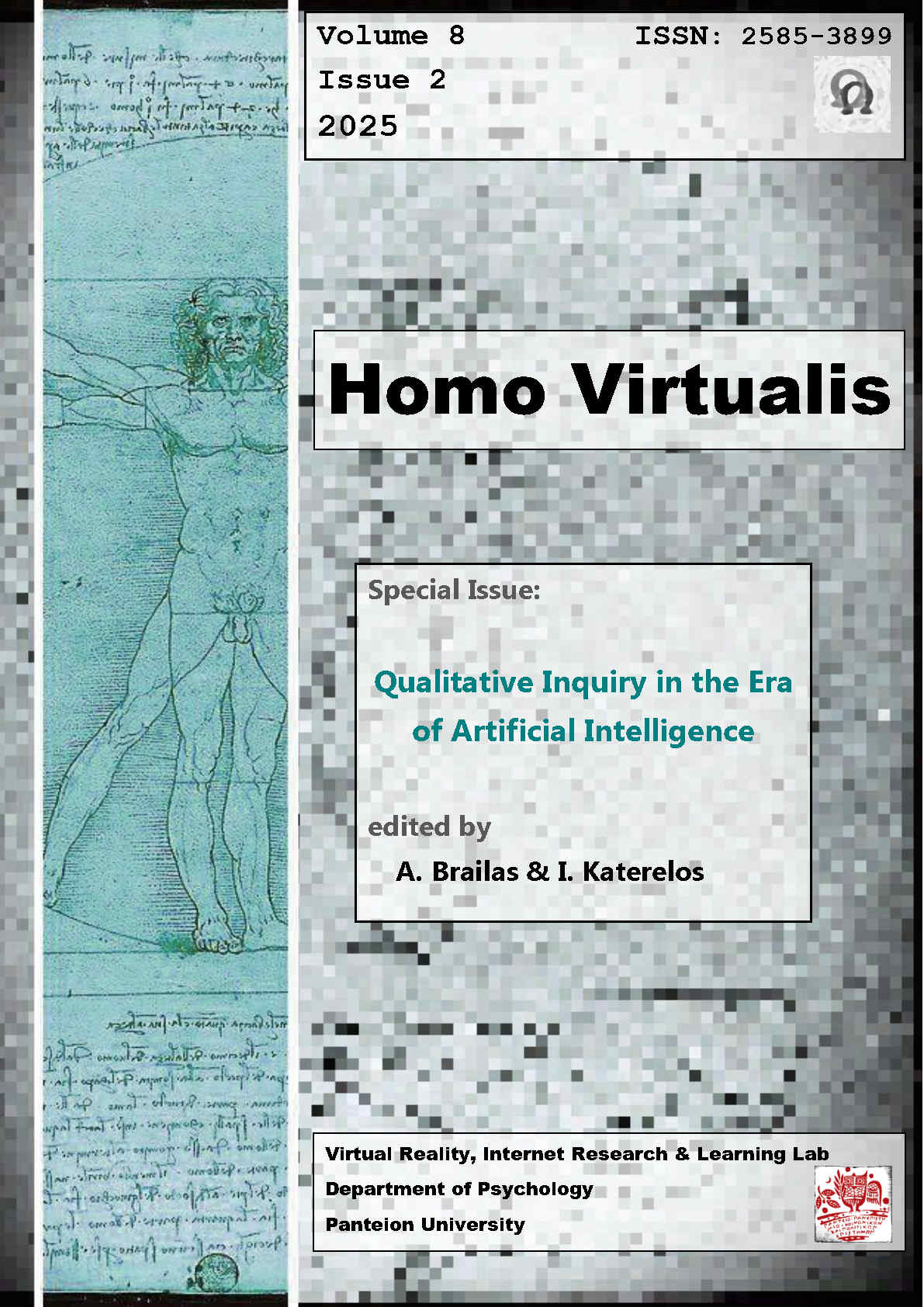Women’s narratives on caring for people living with dementia: Exploring challenges and resources
Resumen
Dementia is a growing global health issue, affecting not only those diagnosed, but also their close environment, particularly family members, most often women, who take on caring responsibilities. The present research aims to explore the experiences of women caring for people with dementia within the Greek sociocultural context, focusing on the difficulties they encounter, the strategies they adopt to cope. The study is grounded in the phenomenological paradigm, seeking to highlight the subjective experience as it is lived and given meaning by the participants themselves. The sample consisted of 12 women caregivers of different ages and social characteristics from three major Greek cities, who care for or have cared for relatives with dementia in the past. Data were collected through semi-structured interviews that integrated appreciative inquiry activities and multimodal methods, such as photo-elicitation and projective cards, which contributed to the emergence of symbolic meanings. Interpretative Phenomenological Analysis (IPA) was used, through which common themes was identified regarding the practical and emotional challenges of caregiving, its impact on relationships and roles, fears and existential concerns, loss management and personal sources of meaning and resilience. The study concludes that caring for people with dementia is a complex and multidimensional experience, and as such requires greater recognition and support at both social and institutional levels.
Article Details
- Cómo citar
-
Adaliali, S. (2025). Women’s narratives on caring for people living with dementia: Exploring challenges and resources. Homo Virtualis, 8(2), 25–61. https://doi.org/10.12681/homvir.43479
- Sección
- Articles

Esta obra está bajo una licencia internacional Creative Commons Atribución 4.0.
Authors who publish with this journal agree to the following terms:
· Authors retain copyright and grant the journal right of first publication with the work simultaneously licensed under a Creative Commons Attribution License that allows others to share the work with an acknowledgement of the work's authorship and initial publication in this journal.
· Authors are able to enter into separate, additional contractual arrangements for the non-exclusive distribution of the journal's published version of the work (e.g. post it to an institutional repository or publish it in a book), with an acknowledgement of its initial publication in this journal.
· Authors are permitted and encouraged to post their work online (preferably in institutional repositories or on their website) prior to and during the submission process, as it can lead to productive exchanges, as well as earlier and greater citation of published work.



